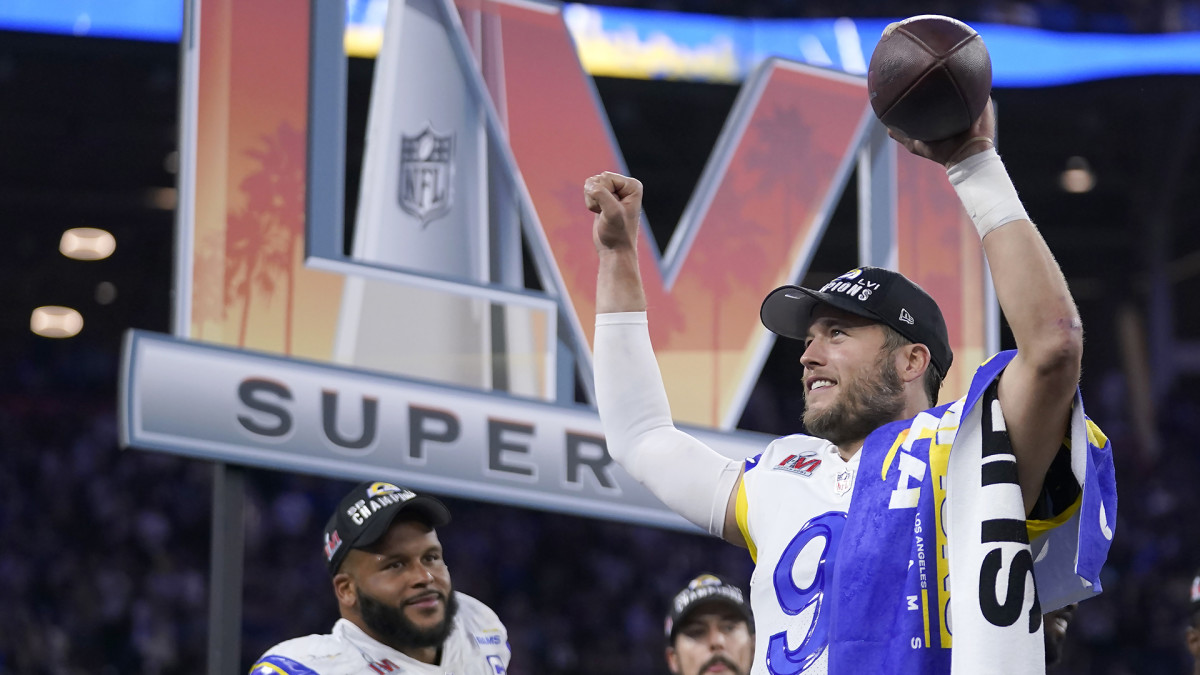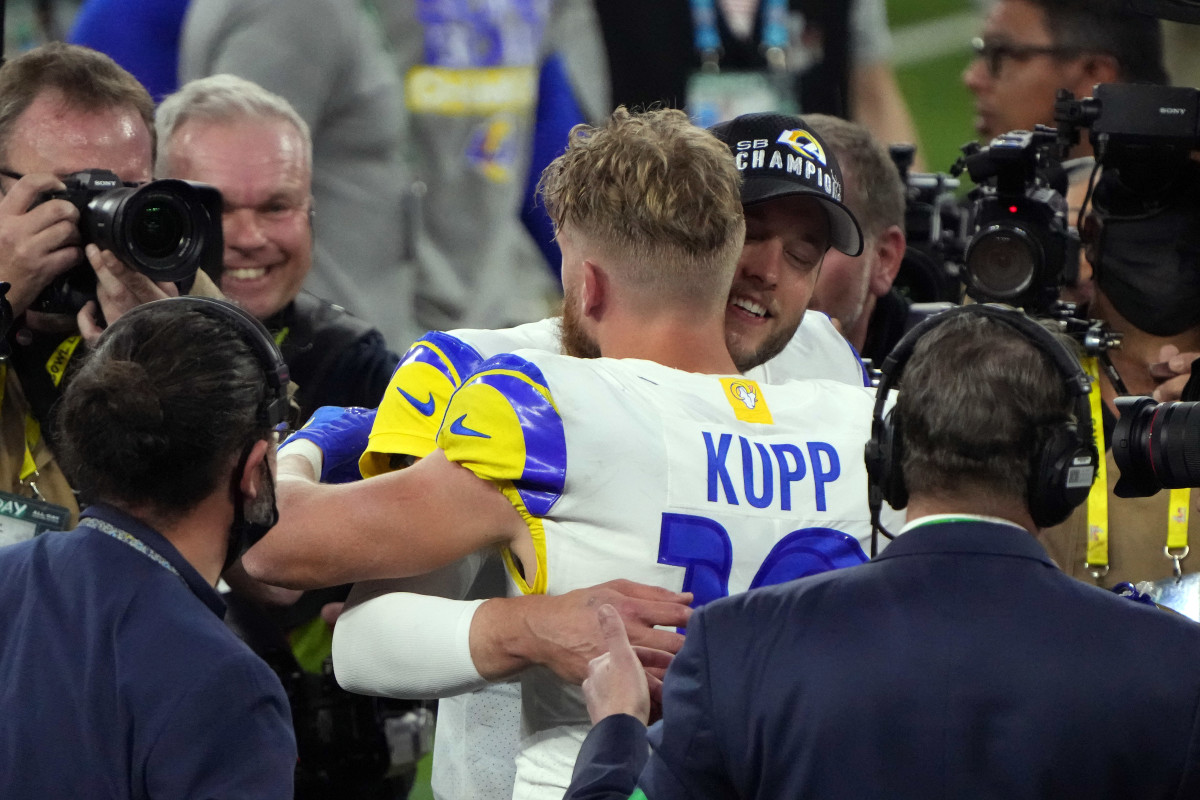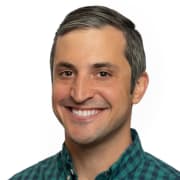Matthew Stafford Rewrote His Story With a Super Bowl Season
LOS ANGELES — Matthew Stafford did not do it the easy way, but this was much more fitting. Over 15 plays and 79 yards in the fourth quarter of Super Bowl LVI, ending with a short touchdown pass to Cooper Kupp, one signature drive capped off the year that rewrote the story of his NFL career.
On Sunday evening, the Rams topped the Bengals 23–20, in a home stadium filled with more fans in orange than blue, to capture their first championship in 22 years and the franchise’s first in L.A. since 1951. And now everything is different.
Stafford came into the NFL as the league’s top pick in 2008. His career has spanned eras—he was drafted before the rookie wage scale changed how we think about roster-building around young quarterbacks, played through the league’s passing-game boom and, perhaps paradoxically, lasted so long that his age (34) no longer sounds old for a player at his position.
He has been a peer of Tom Brady, the Manning brothers, Ben Roethlisberger and Drew Brees, yet it took until all of them retired for him to realize his finest hour. For so long he was a forgotten man of his own generation, simply absent each year as the rest of the aforementioned group played out the postseason without him.

Given all that, maybe it was fitting that he didn’t even speak during the trophy ceremony on the Super Bowl’s makeshift podium, where his team, in the end zone painted with the Rams’ logo and colors, received football’s biggest prize. He stood to the side, next to Aaron Donald, adjusting his championship hat as his top receiver fielded questions as the game MVP.
The game mirrored the team’s season, which began with a 7–1 start before hitting a rough patch as injuries struck. Stafford once again got off to a blazing start, completing nine of his first 10 passes for two TDs as the Rams built up a double-digit lead. The Bengals fought back with a long Tee Higgins touchdown to open the second half followed by a deflected interception off the hands of reserve receiver Ben Skowronek, forced into action after an injury to Odell Beckham Jr. Cincinnati settled for a field goal to take a 20–13 lead. After a field-goal drive cut it to 20–16, the Rams punted on three straight drives with a chance to take it back.
But with Donald, Von Miller and the rest of the defense harassing Joe Burrow all night, one more scoring drive was all they needed, and they got it with one of the most impressive drives of the postseason. The game ended with Stafford taking the final kneeldown, then clutching the ball tightly as he went off to embrace teammates one at a time. Stafford has now, finally and emphatically, ensured he will never be forgotten.
Get SI's Rams Super Bowl Champions Commemorative Issue Here
Football is a team sport, one in which the quarterbacks don’t even play half the game. We all know this implicitly, yet—fairly or not—QBs are always judged on wins anyway. There are seemingly two classes of quarterbacks: those who have won Super Bowls and those who haven’t. Stafford is now among the former.
His victory Sunday wrapped up not just one storybook ending, but two—his own and his team’s, a pair of circuitous paths intertwined. The Rams offered him a second chance to shape the lasting story of his career in a new location, just as he offered them a second chance to summit the mountaintop after famously scoring just three points in Super Bowl LIII with Jared Goff under center. This time, like then, 23 was enough.
The cost to acquire Stafford—the draft picks and the dead-cap money—has paid for itself many times over. As have all of the other high-profile moves the team has made with its hyper-aggressive win-now approach.
But his first six months throwing footballs for the Rams will also rewrite how people think of his 12 years on the Lions. No longer will his critics be able to dismiss his stats by saying he simply wasn’t a winner. People will now assume it was the Lions who held him back, not the other way around.

He has also given more hope to franchises that consider themselves “a quarterback away”—a phrase that once felt as empty as being just five numbers off from hitting the Powerball. Following what Brady did last year, this is now two straight seasons in which the headlining veteran QB on the move led his new team to a title right away.
If a future quarterback with a wandering eye decides, Hey, this looks easy, he may be part of a larger trend—an inflection point in the way quarterbacks think about their circumstances in an era of more player empowerment. Immediately upon escaping his longtime home, his hand was stamped with a lifetime membership to one of the most elite clubs in sports. Maybe the next Matthew Stafford won’t stick it out for a dozen years before trying something new.
The 2021 Rams were not the Matthew Stafford show. He did not single-handedly drag a ragtag crew to the finish line. His team had the league’s best receiver and one of the best defensive players of all time, along with plenty more star power. But Stafford stands to benefit as much as anyone for his association with this group. He is the seventh QB to go No. 1 and win a Super Bowl. He did what he was brought into the league to do. He did what he was brought to L.A. to do. And even if this goes down as the only season of his career in which he wins a playoff game, he’ll always be known for what happened these last four weeks, for the fact that he got it done.
More NFL Coverage:
